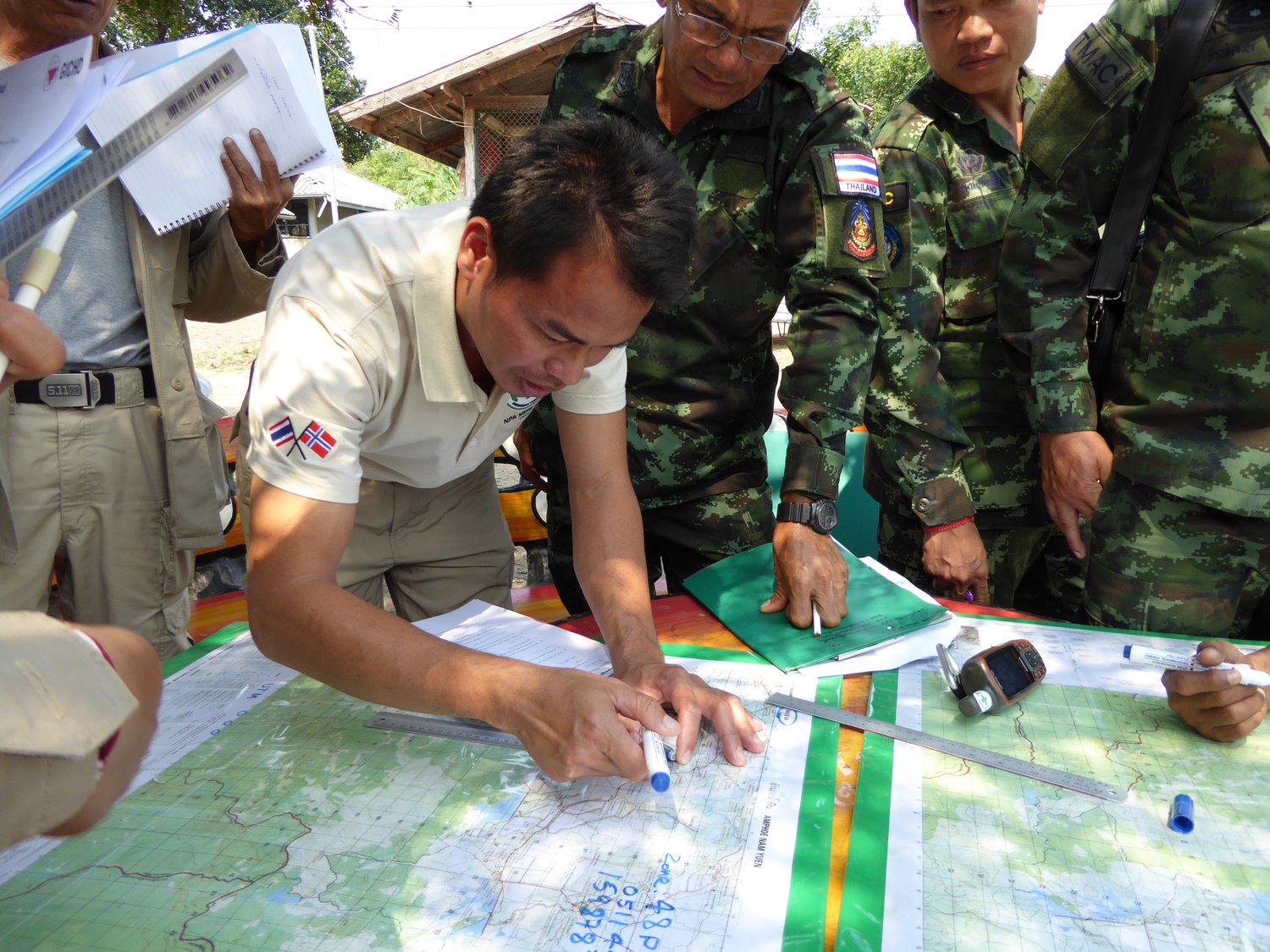Standardisation and the establishment of guidelines for good practice at the national level are vital for reaching the goals of mine action programmes. Standards can incorporate the needs and requirements of a country’s mine action programme in a framework that takes into account the local operating context and a comprehensive national risk assessment.
States continue to bear the main responsibility for the protection of populations within their territories and by extension, for clearing their territories of Explosive Ordnance (EO). Therefore the national level is the most important regulatory framework for mine action. It is where quality management can be used to ensure compliance with standards.
National Mine Action Standards (NMAS) should be guided by the International Mine Action Standards (IMAS), which provide guidance on minimum requirements and best practices. In some instances, IMAS may be used as the mandatory standards if national authorities are not in place, or have refrained from developing NMAS. IMAS do not however hold a legal standing in themselves, unless formally enshrined into a national legal or regulatory framework.
States are encouraged to develop their own legal and regulatory frameworks to conduct effective, efficient and safe mine action operations. National Mine Action Authorities (NMAA) develop and adopt standards that reflect clearance requirements within their country. Therefore, NMAS are country-specific and contain unique technical specifications, criteria and guidelines under which mine action operators execute mine action programs and develop their detailed Standing Operating Procedures (SOPs). NMAS set the minimum requirements against which mine action activities will be implemented and evaluated.
NMAS are set to:
- Regulate action operations from planning and tasking to implementation, monitoring and quality management.
- Improve safety, efficiency and quality of mine action operations
- Set agreed parameters for performance management and evaluation
- Ensure confidence in the services, processes, and products of mine action programs implementing “All Reasonable Effort”
- Ensure national capacity building, national ownership and accountability

Multiple factors are to be considered and mainstreamed in the process of developing, updating or reviewing NMAS. These include but are not limited to:
- Comprehensive understanding of the nature, scope and ramifications of Explosive Ordnance contamination in the country
- Engagement of relevant stakeholders and affected communities
- The humanitarian needs and developmental plans in the country
- Gender, Diversity and Age considerations
- Most recent updates, recommendations and guidelines set forth by IMAS
- National strategies, treaty obligations or ascribed legal frameworks within the country.
The GICHD supports national authorities in the development, maintenance and dissemination of national guidance that make up NMAS. In addtion the GICHD provides training and advice on the review and revision of the existing NMAS on request from national authorities.
The NMAS should include norms and policies already in place and any requirements of the NMAA and mine action operators in the country. They should address all pillars of mine action (Risk education, Clearance of EO, Stockpile Destruction and Victim Assistance) relevant to the specific country programme, as well as detailed guidance on the planning, implementation and monitoring activities, such as: survey, marking and clearance of EO, Explosive Ordnance Disposal (EOD), Battle Area Clearance (BAC), and Risk Education. They should also inscribe the wider enabling requirements, which are prerequisite for the successful mine action programs including Quality Management, Information Management and Reporting, Medical Support, Equipment Testing and Evaluation, Accreditation, Training and Handover.
The GICHD maintains a flexible and responsive approach to supporting national programs and authorities in improving their NMAS based on their needs and requirements. On request, GICHD’s support may include conducting in-country and remote assessments, supporting national review processes to develop, review or revise NMAS comprehensively or with focus on specific thematic areas or chapters, facilitating trainings and workshops.
International Mine Action Standards (IMAS)
IMAS are designed to improve safety, efficiency and quality in mine action, and to promote consistency across mine action operations.
